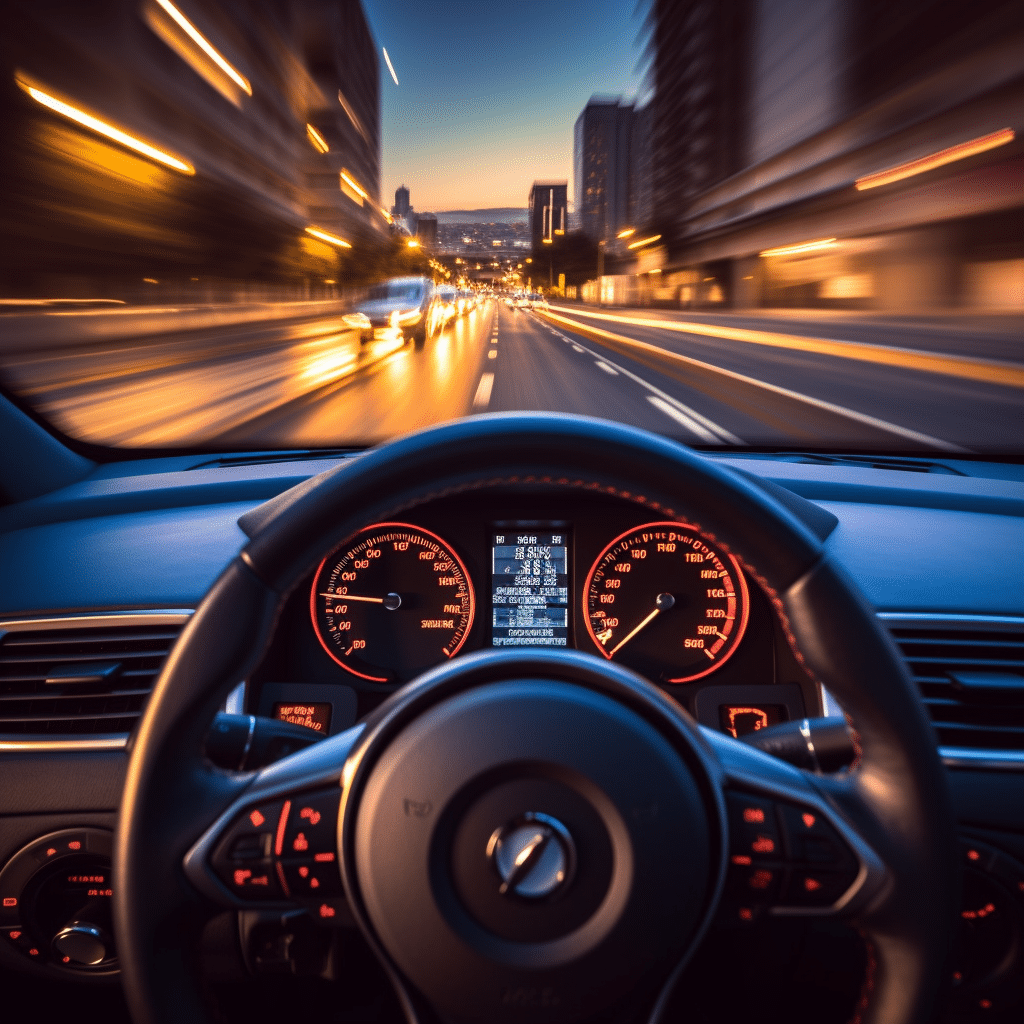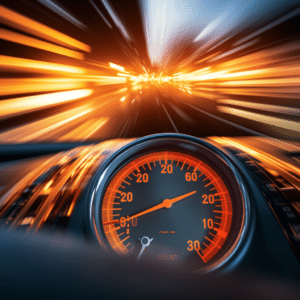
Deciphering Car Acceleration: Mechanics, Causes, and Safety
Car acceleration is a fascinating mystery. It can excite or bewilder us. Why does it happen? Let’s explore the mechanics.
Engine power drives acceleration. When we press the accelerator, fuel intake and combustion surge. This creates an explosion of energy that powers the pistons, starting acceleration.
The transmission system is also key. It bridges engine and wheels, optimizing torque delivery for more power. This complex process shows how all car components work together.
To understand better, I’ll share an experience. On a summer afternoon, I cruised along a winding road. Out of nowhere, my car surged forward with intensity I hadn’t felt before. Adrenaline kicked in and I managed to stop it safely. The accelerator pedal had malfunctioned, causing involuntary acceleration – a reminder of the unexpected.
We must stay vigilant while driving. That way, we can respond swiftly if something like this happens.

Understanding the phenomenon of a car accelerating on its own
Unexplained acceleration of a car is a puzzling thing. It can be frightening and dangerous, causing crashes. To understand this, one needs to look into how modern vehicles work.
Modern cars have electronic throttle control systems instead of the usual gas pedal and engine link. Sensors measure pedal position, engine speed, and vehicle speed. This has improved fuel efficiency and performance, but it may also lead to unintended acceleration.
Sensor malfunctions or glitches may cause inaccurate readings. This might mislead the car into thinking that it should accelerate, so it does. Software anomalies in the ECU may also be responsible.
It’s also possible that it’s a driver error. For example, pressing two pedals at once or not realizing that their foot is on the gas pedal. That’s why it’s important to be aware of your foot positioning.
Regular maintenance checks help to prevent unintended acceleration. Check sensors and install software updates. Also, learn about your car and its potential issues.
If your car accelerates unintentionally, firmly apply the brakes and hold the wheel. Put it in neutral or park and call a mechanic for help.
Possible causes of a car accelerating on its own
It’s not unusual for cars to accelerate without the driver’s input. We must comprehend why this happens. Here are possible explanations:
- Faulty cruise control: It can misunderstand commands and accelerate.
- Stuck throttle: The accelerator gets jammed and leads to continuous acceleration.
- Electronic throttle control failure: Bad communication between the gas pedal and engine can cause acceleration.
- Faulty engine sensors: Wrong signals sent to the vehicle computer can make it increase acceleration unknowingly.
- Pedal misapplication: Mistakenly pressing the brake and accelerator at once causes unintended acceleration.
Remember: These are only a few examples. Every situation is unique. A skilled professional should inspect it.
In one automotive incident, there was sudden acceleration in a car manufacturer’s models. The issue came from mechanical problems with the gas pedals and floor mats. They could get stuck or trapped, leading to acceleration. This led to recalls and a focus on quality control in the industry.
Steps to take when a car accelerates on its own
Stay chill and focused. Place both hands on the wheel. Quickly shift the gear lever to neutral – this will disconnect the engine from the wheels, stopping the acceleration. Gently press on the brake pedal, do not slam it. If the car continues to speed up, pull up the emergency brake until it comes to a halt. Once stopped, turn off the ignition key.
It is key to get help from a professional. A malfunctioning throttle system or a stuck accelerator could be causes of sudden speed up – only a skilled mechanic can make an accurate diagnosis. So, in such cases, don’t go into a frenzy – take action to have control of your vehicle and be safe on the road.
Sarah was driving through a busy city street at rush hour when she suffered from her car’s unexpected acceleration. She acted quickly and followed the steps mentioned above. She safely got her car under control and avoided any harm to herself or others.
This tale is a reminder of how crucial it is for drivers to know how to handle such scenarios responsibly – it could save lives and prevent disastrous accidents.
Preventive measures to avoid unintended acceleration incidents

- Do regular maintenance and inspect your vehicle. Check throttle, brake, and electronic controls.
- Keep heavy items away from pedals on the floor. Nothing should cause acceleration by mistake.
- Learn how each pedal works and reacts. Understanding helps prevent accidental acceleration.
- Keep a safe distance from other vehicles. Ample time to react if sudden acceleration occurs.
- Remain calm and focus on regaining control if acceleration happens. Hands on the wheel to steer safely.
- If unusual behavior related to acceleration, see a professional mechanic.
Stay informed of recalls or safety notices from your car manufacturer. Regularly check their website.
Modifications to your vehicle might be unsafe. Consult professionals before making any changes to avoid unintended acceleration.
Follow preventive measures and maintain your vehicle. You can reduce the risk of unintended acceleration while on the road. Stay safe!
Conclusion
We have examined the strange event of cars speeding up on their own. We’ve looked at causes such as technical problems and sensor malfunctions, as well as the role of human error. This brings us to the underlying point – the necessity to be careful and maintain the car.
The implications of this are huge. It can put people in danger, cause damage, and reduce the driver’s trust. That is why it’s essential to act instantly if you notice unexpected acceleration.
Every case is different. So if you experience this issue, talk to a qualified mechanic or auto expert right away. Taking action quickly can stop the problem from getting worse.
In conclusion, we must be aware of unexpected acceleration and take care of our vehicles. This way, we make sure our own safety and that of others is not jeopardized. Let’s do this now – our safety depends on it!
Frequently Asked Questions
1. Why does my car accelerate on its own?
There may be various reasons why your car accelerates on its own. One common cause is a malfunctioning throttle system, which controls the acceleration. It could also be due to a stuck accelerator pedal or a faulty cruise control system.
2. How dangerous is a car that accelerates on its own?
A car that accelerates on its own can be extremely dangerous. It can lead to loss of control, potential accidents, and injuries. It’s crucial to address this issue promptly by seeking professional help to avoid any harm.
3. What should I do if my car starts accelerating unexpectedly?
If your car starts accelerating unexpectedly, follow these steps: (1) Stay calm and avoid panicking. (2) Firmly apply the brakes but avoid slamming them. (3) Shift the gear to neutral. (4) Try to safely pull over to the side of the road. (5) Turn off the engine and seek assistance from a mechanic.
4. Can a faulty throttle position sensor cause a car to accelerate on its own?
Yes, a faulty throttle position sensor (TPS) can cause a car to accelerate on its own. The TPS measures the angle of the throttle and sends signals to the engine control unit. If it malfunctions, it can inaccurately relay information, leading to unintended acceleration.
5. Is unintended acceleration a common problem in certain car models?
Unintended acceleration is not specific to certain car models. While some cases have been reported in certain vehicles, it is generally considered an isolated issue. Regular maintenance, prompt repairs, and following recalls can help prevent such problems.
6. How can I prevent my car from accelerating on its own?
To minimize the risk of your car accelerating on its own, you should: (1) Regularly maintain your vehicle, including its throttle system. (2) Address any warning lights or unusual symptoms promptly. (3) Follow recalls and get them fixed. (4) Drive attentively and be prepared to react calmly in unexpected situations on the road.
